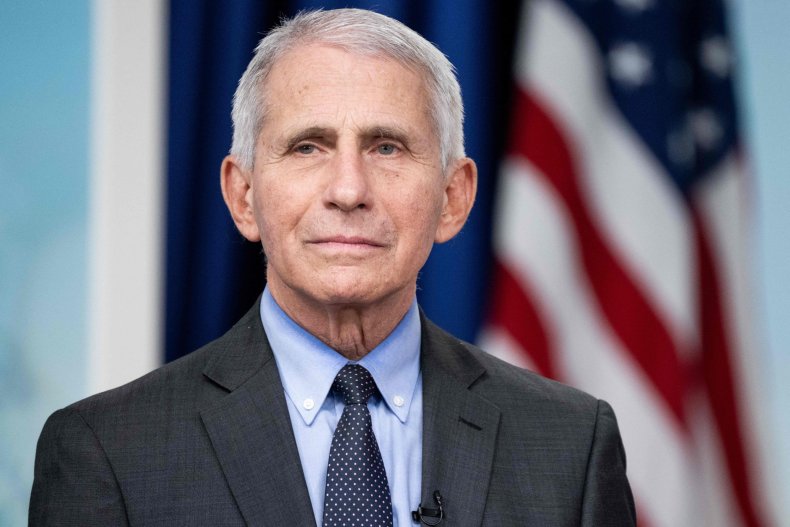Infection
Fauci speaks out over COVID variant as mask mandates reintroduced
Anthony Fauci has said that there is “not going to be the tsunami of cases that we’ve seen” during the darkest days of the COVID-19 pandemic, following the emergence of two new variants of the virus.
Speaking to the BBC on Tuesday, the former chief medical advisor to the president, who was regularly the face of the government’s response to the pandemic, played down the seriousness of the new strains, stressing that the vast majority of the population had enough immunity to prevent infections requiring medical intervention.
His remarks come as some private institutions, hospital operators, and colleges in the U.S. have reintroduced the requirements for staff or visitors to wear masks while at their sites to limit the spread of the new variants—EG.5 and BA.2.86—prompting speculation that fresh COVID restrictions could be on the horizon.
A spokesperson for the Centers for Disease Control and Prevention (CDC) told Newsweek on Thursday it currently has no intention to call for a return of mandated mask-wearing, but didn’t deny that this might change if cases of the new variants were to rise significantly.
AFP via Getty Images/SAUL LOEB
“[The] CDC does not issue mandates, we make recommendations, and they are based on the current circumstances,” the spokesperson said. “We will continue monitoring and will adjust our recommendations accordingly.”
However, Fauci suggested that a large spike in hospitalizations due to COVID-19 infections—which occurred several times during the pandemic, as new variants emerged in the population—was unlikely to happen again.
While he said that those with immunity “very well may get infected with the new virus that’s circulating,” the leading immunologist added that “96 percent or more of the population has some degree of immunity, either through prior infection or through vaccines, or both—with or without boosters.
“So if you get a surge of infections now, you’re certainly going to see infections; you’re going to see people that will likely get mild to moderately ill; you’ll get some people, mostly the vulnerable—the elderly and those with underlying conditions—who might require hospitalization, and even some deaths.
“But I doubt very seriously…whether you’re going to see the hospital and death surge that we’ve seen in the past, even if we get a surge of infections.”
Though Fauci cautioned that “you never say things with complete confidence with this virus,” he explained the lack of alarm was “because there’s enough fundamental community-level protection that, even though you’ll find the vulnerable will fall by the wayside—they’ll get infected, they’ll get hospitalized and some will die—it’s not going to be the tsunami of cases that we’ve seen.”
Fauci, who announced he would step down from his government roles in December, declined a request for an interview when approached by Newsweek on Friday.
In the week to August 19, there were more than 15,000 hospitalizations due to COVID-19 infections across the U.S., the most recent CDC monitoring figures show—a rise of nearly 19 percent on the previous week.
Admissions have been steadily rising since July, but are far below the highest peaks of the pandemic and appear to be localized into hotspots. The highest number of hospitalizations due to COVID-19 in any week since the virus first emerged was over 150,000 in January 2022, and the highest weekly total this year was over 44,000 in the first week of January.
The World Health Organization has categorized the EG.5 variant as of low risk to public health, while the CDC has assessed the BA.2.86 strain to be more likely to infect people who have existing immunity to the virus.

